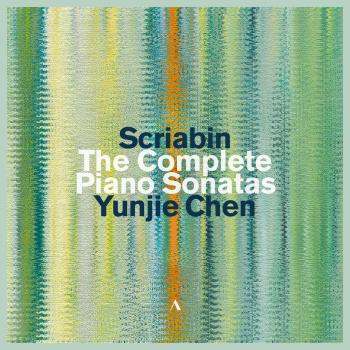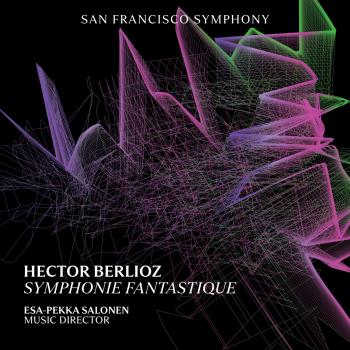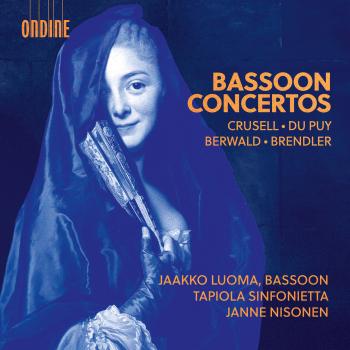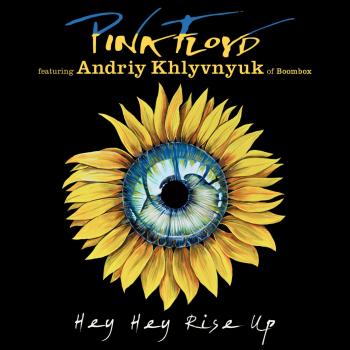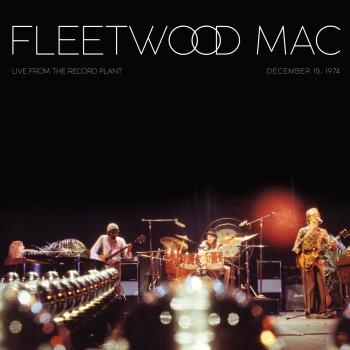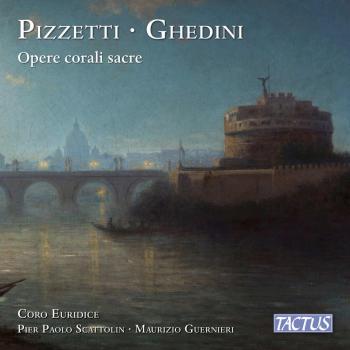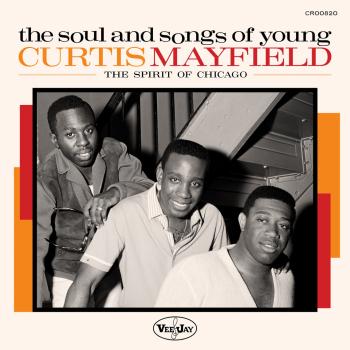
Einsam Nino Gvetadze
Album info
Album-Release:
2020
HRA-Release:
11.09.2020
Label: Challenge Classics
Genre: Classical
Subgenre: Instrumental
Artist: Nino Gvetadze
Composer: Robert Schumann (1810-1856)
Album including Album cover
- Robert Schumann (1810 - 1856):
- 1 Arabeske, Op. 18 07:39
- Kinderszenen, Op. 15:
- 2 Kinderszenen, Op. 15: 1. Von fremden Landern und Menschen 01:40
- 3 Kinderszenen, Op. 15: 2. Curiose Geschichte 01:07
- 4 Kinderszenen, Op. 15: 3.Hasche-Mann 00:32
- 5 Kinderszenen, Op. 15: 4. Bittendes Kind 00:49
- 6 Kinderszenen, Op. 15: 5. Gluckes genug 01:04
- 7 Kinderszenen, Op. 15: 6. Wichtige Begebenheit 00:46
- 8 Kinderszenen, Op. 15: 7. Traumerei 02:42
- 9 Kinderszenen, Op. 15: 8. Am Camin 00:57
- 10 Kinderszenen, Op. 15: 9. Ritter vom Steckenpferd 00:45
- 11 Kinderszenen, Op. 15: 10. Fast zu ernst 01:46
- 12 Kinderszenen, Op. 15: 11. Furchtenmachen 01:54
- 13 Kinderszenen, Op. 15: 12. Kind im Einschlummern 02:02
- 14 Kinderszenen, Op. 15: 13. Der Dichter spricht 02:30
- Kreisleriana, Op. 16:
- 15 Kreisleriana, Op. 16: 1. Außerst bewegt 02:35
- 16 Kreisleriana, Op. 16: 2. Sehr innig und nicht zu rasch 09:09
- 17 Kreisleriana, Op. 16: 3. Sehr aufgeregt 04:23
- 18 Kreisleriana, Op. 16: 4. Sehr langsam 03:41
- 19 Kreisleriana, Op. 16: 5. Sehr lebhaft 03:07
- 20 Kreisleriana, Op. 16: 6. Sehr langsam II 04:11
- 21 Kreisleriana, Op. 16: 7. Sehr rasch 02:10
- 22 Kreisleriana, Op. 16: 8. Schnell und spielend 03:39
- Robert Schumann:
- 23 From Waldszenen, Op. 82: VII. Vogel als Prophet 03:27
- 24 From 3 Romanzen, Op.28: II. Einfach 04:07
Info for Einsam
Robert Schumann’s piano music is invariably bound up with the dramatic events of his life. Schumann channelled both his love for Clara and his pianistic frustrations into his music, which was often composed with Clara in mind, both romantically and musically; she was an outstanding pianist and composer in her own right.
During the late 1830s Schumann wrote numerous works for the piano, many of which met with considerable success. The Arabeske in C, Op. 18 dates from early 1839. In a letter of 15 August Schumann described the piece, which was dedicated to Frau Majorin Friederike Serre auf Maxen, as “delicate – for ladies”, and it is true that it has a gently lyrical, dreamy quality. Yet there is more to the Arabeske than this modest description would suggest. Schumann had left Leipzig for Vienna in the autumn of 1838 after reaching an impasse in his relations with the Wiecks, and the keenness with which he felt the separation from Clara may be sensed in the Arabeske’s mixture of wistfulness and determination.
Of the piano music written by Schumann in the 1830s, just two collections include movement titles: the Phantasiestücke, Op. 12, and the Kinderszenen, Op. 15 of 1838. Schumann sketched 30 “cute little things” in early 1838, from which he chose 13 to create the Kinderszenen. The vivid movement titles were attached to each of the Kinderszenen after the music had been written, rather than inspiring the musical content. Yet the tender romanticism of these pieces – in Träumerei especially – suggests that Clara was never far from Schumann’s thoughts as he composed them.
Although Clara was a powerful source of inspiration for Robert, he was also profoundly influenced by both musical and literary sources, which helped him to make sense of his rich inner world. E.T.A. Hoffmann enabled Schumann to explore the different facets of his nature through the character of Johannes Kreisler, who appeared in several volumes including Hoffmann’s Fantasiestücke, one section of which is entitled ‘Kreisleriana’. Schumann strongly identified with Kapellmeister Kreisler: both men were devoted to the music of J.S. Bach, and both veered between extremities of mood, from ecstasy to despair. This multifaceted nature is encapsulated in the eight movements of Kreisleriana, Op. 16. Kreisler’s brusque mood-swings are represented through Schumann’s contrasts between dazzling virtuosity and lyrical tenderness, often anchored by the tonal contrast between the key areas of G minor and B-flat major. Schumann’s dual nature, previously communicated through Florestan and Eusebius, had found a new mouthpiece.
In contrast with the first decade of his career, which was almost entirely given over to piano music, Schumann did not write a great deal of solo piano music in the 1840s, producing just a handful of fugues and pieces for children. At the end of 1848 he began the Waldszenen (‘Forest Scenes’), a set of nine short piano pieces. ‘Vogel als Prophet’ is one of the more disturbing pieces in the set.
Schumann had returned from Vienna to Leipzig in April 1839. He drafted his Drei Romanzen, Op. 28, by 11 December. Clara was so enamoured of the set that she insisted on being their dedicatee: “As your bride you absolutely have to dedicate something more to me; and I know of nothing more tender than these three Romances, especially the middle one, which is the most beautiful love duet.”
Nino Gvetadze, piano
Nino Gvetadze
Born and raised in Tbilisi, Nino Gvetadze studied with Veronika Tumanishvili, Nodar Gabunia and Nana Khubutia. After her graduation Nino moved to the Netherlands to study with Paul Komen and Jan Wijn.
Nino received various awards. The most important were the Second Prize, Press Prize and Audience Award at the International Franz Liszt Piano Competition 2008. She received the prestigious Borletti-Buitoni Trust Award 2010.
Nino Gvetadze has performed with many outstanding conductors such as Michel Plasson, Yannick Nézet-Séguin, Michel Tabachnik, John Axelrod and Jaap van Zweden and with the Rotterdam, The Hague, Brussels, Seoul and Netherlands Philharmonic, Bergische and the Rheinische Philharmonie amongst others. She went on tour with the Mahler Chamber Orchestra, . Kammerakademie Potsdam and Amsterdam Sinfonietta.
Nino has given various recitals all over the world, among those in Hannover (PRO MUSICA Preisträger am Klavier-Zyklus), Bayreuth, the Concertgebouw Amsterdam, with Jean-Yves Thibaudet at the Spoleto Festival, Lucerne Piano Festival, Bunka-kaikan Hall Tokyo and twice at the Festival Piano aux Jacobins (Toulouse).
The repertoire of Nino stretches from Bach, Mozart and Beethoven to Chopin, Liszt, Rachmaninov and further to contemporary music. Most of the selected pieces are very virtuoso and demanding, but in her interpretation Nino always brings forward its poetry and characteristic colors.
The St. Gallen Tagblat wrote: “absolutely thrilling” about her performance of Tchaikovsky’s 2nd Piano Concerto and: “Poetry and Phantasy dominated indefatigably over the pure brilliance.”
Concertonet : “Schubert’s Wanderer Fantaisie was expressed with a total and admirable knowledge of the architecture of the score, enthralling with an outstanding feeling for timbre and colour.”
Nino recorded 3 solo CDs: Piano works by Mussorgsky (Brilliant Classics), Rachmaninoff Preludes op 23 and op 32 (Etcetera) and “Widmung” with Liszt piano works (Orchid Classics). Her recordings and interviews are often broadcasted on European radio and TV Stations.
Nino plays on a Steinway Grand Piano, kindly lent to her by the Dutch National Music Instrument Foundation.
This album contains no booklet.

